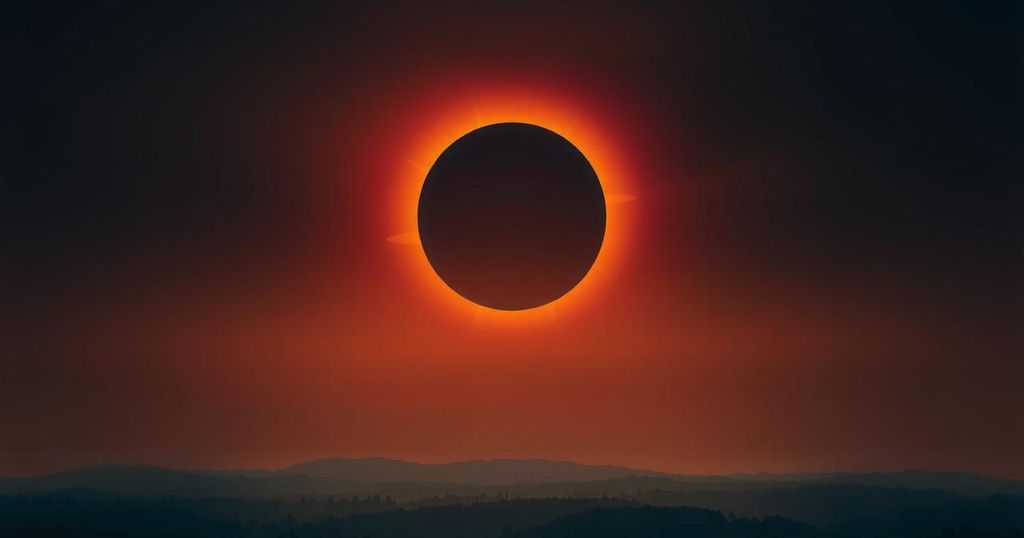First Solar Eclipse of 2025: Viewing Details and Safety Precautions
The first solar eclipse of 2025 is on March 29, lasting from 2:20 PM to 6:13 PM IST, peaking at 4:17 PM. It will not be visible from India. The year holds two solar eclipses and two lunar eclipses, including one on March 14 coinciding with Holi, which also will not be visible in India.
The first solar eclipse of 2025 is scheduled for March 29, occurring when the Moon is closest to Earth and directly obstructs sunlight. This event will be a partial solar eclipse, which means it will only cover part of the Sun. The eclipse is expected to commence at 2:20 PM IST and conclude at 6:13 PM IST, peaking at 4:17 PM, as reported by NASA.
Visibility for the March 29 solar eclipse extends across regions including Asia, Africa, Europe, and the Americas; however, it will not be observable in India. Caution is advised for those wishing to view the eclipse, as direct observation without proper eye protection can lead to severe eye injuries, including retinal burns.
NASA has indicated two solar eclipses will occur in 2025: the initial on March 29 and a second anticipated on September 21. Additionally, two lunar eclipses are set to take place this year, with the first occurring on March 14 during the festival of Holi, from 09:29 AM to 03:39 PM, reaching its peak at 12:29 PM. Unfortunately, this lunar eclipse will also be invisible in India, classifying as a “Blood Moon,” which appears red due to the Earth’s shadow. The second lunar eclipse of the year is slated for September 7, 2025.
In summary, the first solar eclipse of 2025 will take place on March 29, peaking at 4:17 PM IST, yet it will not be visible from India. There are two solar eclipses expected this year, alongside two lunar eclipses, including one coinciding with Holi. Viewers should exercise caution when observing solar eclipses to prevent eye damage.
Original Source: www.ndtv.com




Post Comment